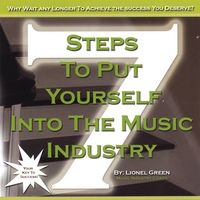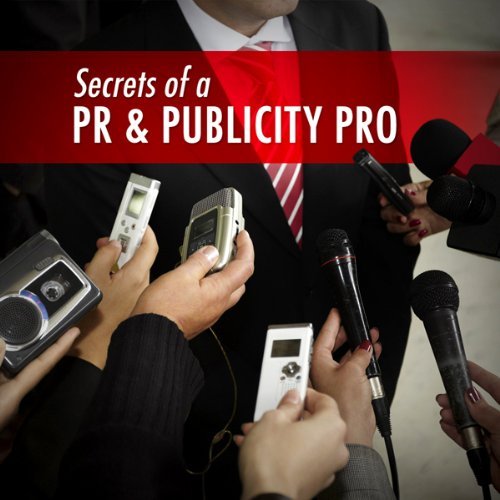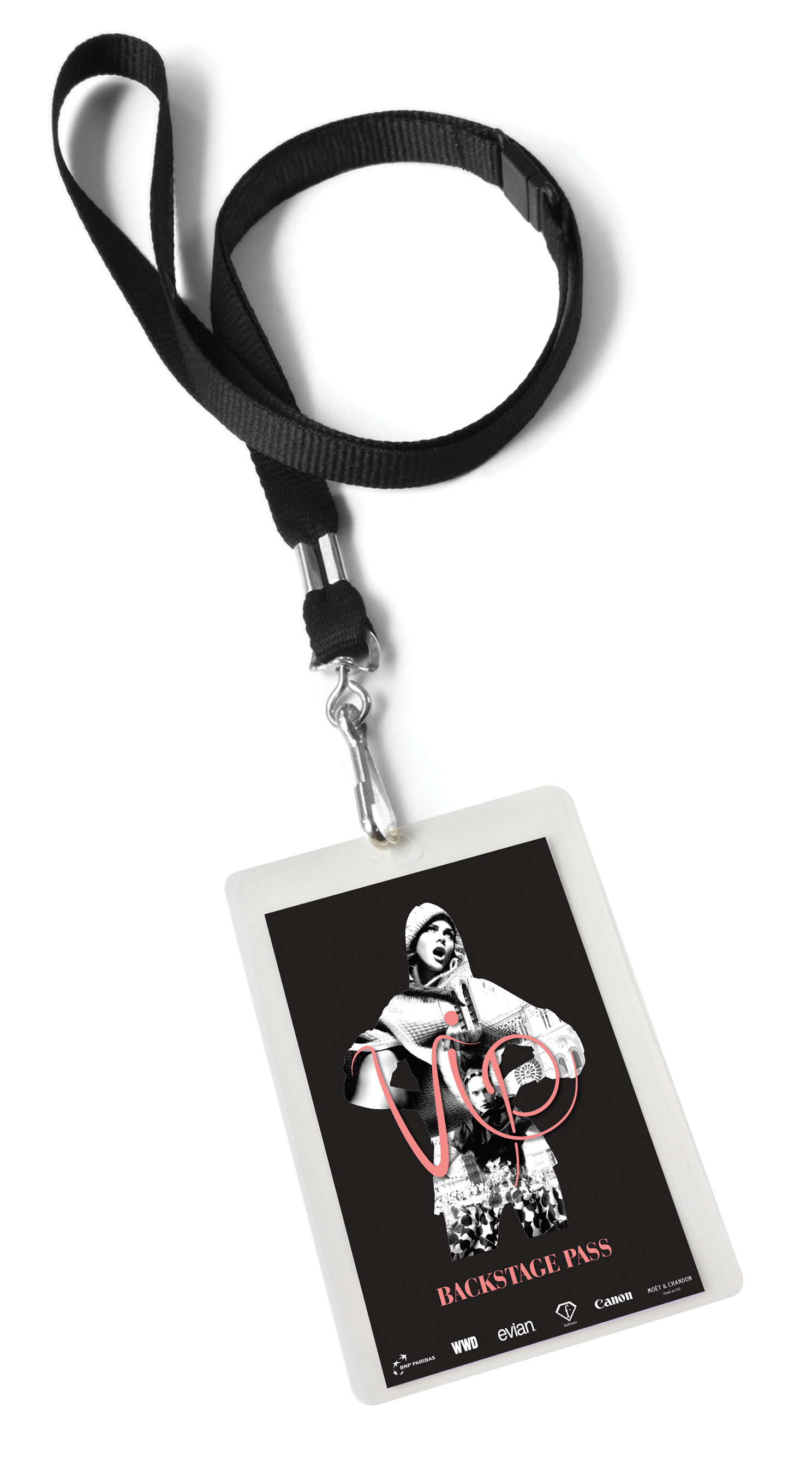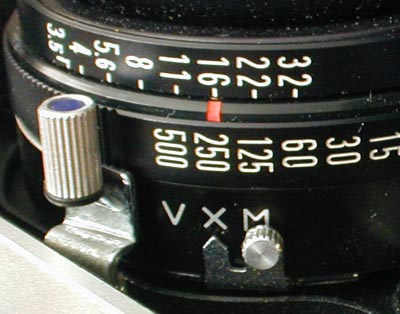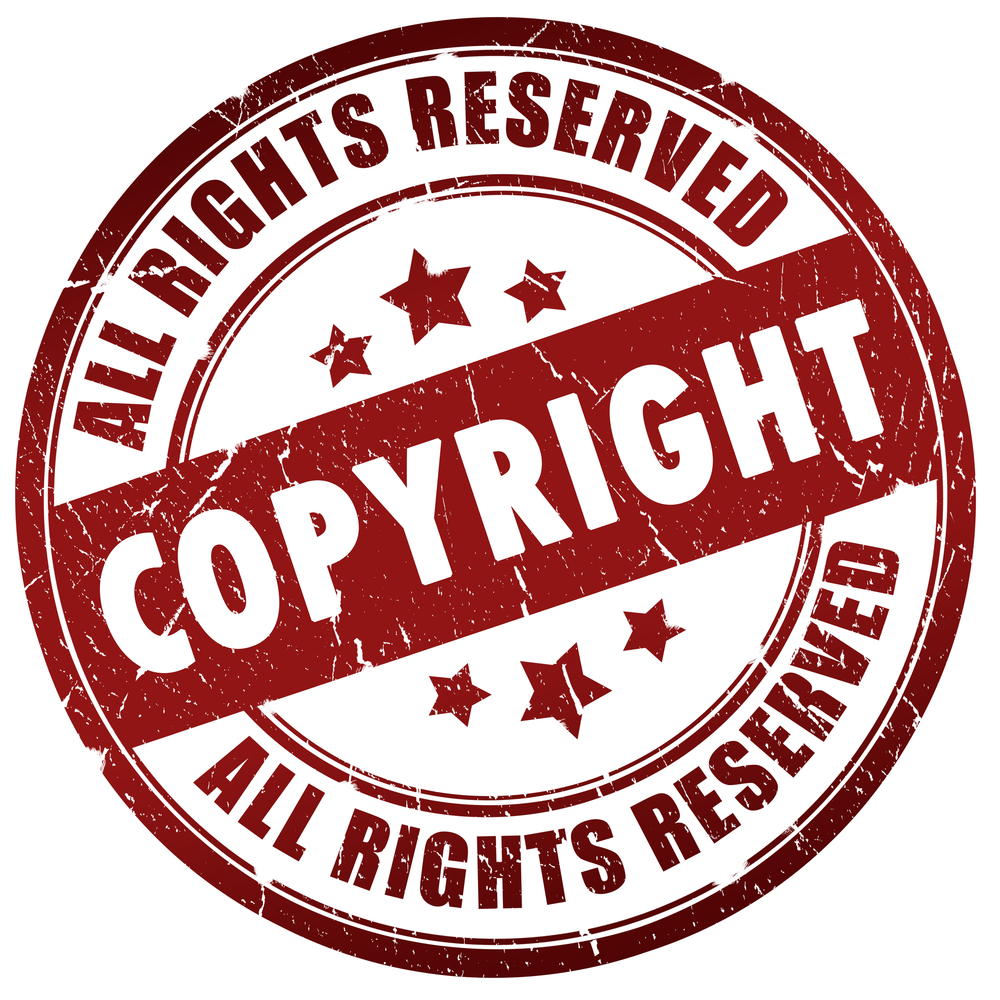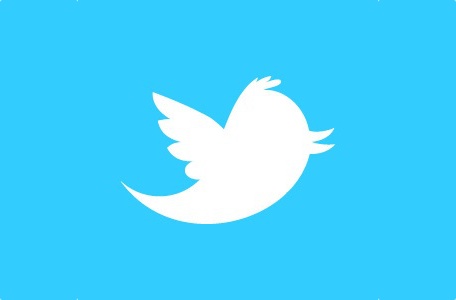Lionel Green provides 7 Steps To Put Yourself Into The Music Industry
 AMW
AMW
Secrets of a PR and Publicity Pro
Do you crave free media publicity? Learn how to identify a story idea about your brand or business, and then promote that idea to the media for publicity. Every business owner dreams of free media publicity, and why not.
After all, a story on the nightly news service promoting one of your new products or services is far more credible than a paid commercial. And it’s free. You’ll also learn how the media works, how a reporter thinks how a newsroom operates, how to build relationships with reporters, how to write a news release, how to set up a media conference, as well as tips and strategies for when you appear on camera.
Mark Aiston bio: Mark is a television host in Adelaide Australia. he has worked with the the ABC and the Ten Network as well as with the Australian Radio Network.
Performance Booking Agreement Template
This agreement is made this ________ day of ______________, 20__ by and between _______ (Presenter) ___________ (hereinafter referred to as the “Presenter”) and _____ Artist_____ , if more than one, listed on Addendum A attached hereto and included herein (hereinafter referred to as the “Artist”), by and through their designated agent or representative (“Manager”) identified below.
WHEREAS, Presenter conducts the event known as: ________________________________________________ (hereinafter referred to as the “Performance “); and ______Artist ____________
WHEREAS, Presenter desires to hire Artist, as independent contractor(s), to provide the Performance generally described below (the “Performance”).
WHEREAS, Artist(s) desire to provide such Performance;
The parties agree as follows:
1. Artists: The names and addresses of the Artist who will appear during the Performance, the amounts to be paid to each.
2. Agent/Manager: The name and mailing address of the Representative, who is executing this Agreement on behalf of Artist(s), is: ______________________________________________________
3. Place of Performance: The place of performance is at _____________________________________________________________
4. Date(s) and Time(s) of Performance:
The date(s) of the Performance shall be ______________________, 2002 and the time(s) of the Performance shall be _______________________. This Performance shall be _______ hours with a __________ intermission.
5. Performance: The Performance is generally described as: _____________________________________________________________
6. Agreement to Perform: Artist(s) agree to provide the Performance in accordance with the terms of this Agreement and any addendums or riders hereto.
7. Price of Performance: Presenter agrees to pay Artist or his agent an aggregate of _______________________ DOLLARS ($0000) for the Performance by cheque immediately following the Performance. The cheque shall be made payable to: _____________________________________________________________.
8. Recording, Reproduction or Transmission of Performance: Presenter will use its best efforts to prevent the recording, reproduction or transmission of the Performance without the written permission of Artist(s) or Artist’s representative.
9. Excuse of Obligations: Presenter and Artist shall be excused from their obligations hereunder in the event of proven sickness, accident, riot, strike, epidemic, act of God or any other legitimate condition or occurrence beyond their respective control.
10. Taxes: Presenter agrees to prepare and file all tax information required of a person who hires an independent contractor and Artist(s) agree that they have sole responsibility for the payment of any federal or provincial taxes arising from the monies paid by Presenter to Artist(s) for the Performance.
11. Indemnify for Copyright Infringement: Artist(s) represent and warrant that they are knowledgeable about the copyright laws of Canada as applicable to the Performance, and that Artist(s) shall not perform any copyrighted materials of others during Performance without full compliance with such applicable copyright laws. In the event that Artist(s) breach this representation, warranty and covenant, Artist(s) hereby agree to INDEMNIFY AND HOLD HARMLESS Presenter and its employees, guests and agents from and against all liability, loss, damages, claims, and expenses (including attorney’s fees) arising out of such breach.
12. Independent Contractor: Artist(s) acknowledge that they shall perform their obligations hereunder as an independent contractor and not as an employee of Presenter. Artist(s) further acknowledge that they are not on Presenter’s payroll and/or tax withholding rolls. Artist(s) shall have sole control and direction in the conduct of the Performance.
13. Merchandising: Artist(s) shall not sell any goods, products, merchandise or services (other than the services provided herein) at the performance except by express written permission of Presenter.
14. Promotion: Presenter shall be entitled to advertise and promote the appearance of Artist(s) and the Performance. Artist(s) acknowledge that Presenter will rely on the terms hereof in all such promotions and advertising and in the brochures to be printed setting forth the names, dates and times of all performances to be held. Artist(s) hereby acknowledge and agree that Presenter may use their names, photographs, likeness, facsimile signature and any other promotional materials in all of such promotions, advertising or other activities used to increase attendance at performance.
15. Parking: Presenter shall provide parking space for vehicles in a location of close proximity to and with direct access to the backstage area where Performance will take place on the date(s) of Performance. This parking space will be reserved for Artist(s) for a period of four (4) hours prior to the Performance and ending three (3) hours following the Performance.
16. Security: Presenter shall provide security for the backstage and stage areas before, during and after the Performance. Presenter shall provide security personnel to protect Artist(s) and their property as deemed appropriate by Presenter in its discretion.
17. Passes: Presenter shall provide identification passes to Artist(s) for the backstage and stage where Performance is to be held.
18. Stage: At its sole expense, Presenter shall furnish the stage, and stage lighting, sound and power for the Performance, and Presenter shall provide all stagehands required to assist the setup for and conduct of the Performance and takedown after the Performance.
19. Dressing Rooms: Presenter shall provide Artist(s) with one private dressing room, which will be clean, dry, well-lit and air-conditioned.
20. Authority to Execute: The representative who is executing this Agreement on behalf of Artist(s) hereby warrants and represents that he has the full power and authority to bind Artist(s) on whose behalf he is executing this Agreement and acknowledges that he is making this representation and warranty with the understanding that Presenter is relying thereon.
In Witness Hereof, this Agreement is executed on the date first above written.
Presenter (Authorized signature)
By: ____________________________________
Date:___________________________________
Artist/Agent or Manager representative
By: ____________________________________
Date:___________________________________
Band Member Agreement Template
Band Member Agreement
For ________________(Insert band name)
AGREEMENT made this _______ day of ____________, 20_, by and between the undersigned Artist and the undersigned Musician(s).
This Agreement is entered into in the City of ___________ and County of ________________, State of __________ and is guided by and governed by the laws of that state.
The undersigned parties hereby agree to the following responsibilities:
1. Show up for practice as agreed upon failure to do so can void contract and end any future agreements. UNLESS there is an emergency or other uncontrollable circumstances out of the Musician(s) control. (Example: Death of family member, illness, accident, act of God.) If there is a problem notify Artist within ________hours before rehearsals were to commence.
2. It is the Musician(s) responsibility to keep their equipment in good working condition, and upgrade appropriately when the revenue is available.
3. There should be no drinking/smoking on stage, always maintaining good showmanship/ quality as deemed by management and myself.
Musician(s) will follow the instructions of the Artist and management team.
Other Provisions
4. Under no circumstances is a bandmember (Musician(s)) allowed to talk to club owners, record labels, radio stations, etc in regards to setting up anything for the band, in which promises are made or money is mentioned, etc.. The bandmembers (Musician(s)) should direct all inquires to myself and then I can pass it along to management, or hand out business cards with our managements contact info on it.
5. Any other outside performing with another band or engagement that interferes with the schedule of Artist will void the contract if necessary.
6. Understanding that the bandmembers (Musician(s)) main job objective is bring to life songs that are in the Artist format and 100% attention, enthusiasm and dedication is needed to make things happen. Lack of any of the above can void contract if it is detrimental to our success.
7. The Artist makes no promises or guarantees about Rewards and compensation but every effort will be in achieving the goals and payment will be made to the Musician(s) when possible.
The following conditions are in effect only as long as the contract is valid.
2. Live performances, bandmember (Musician(s)) will receive 20% of the performance fee.
3. In regards to royalties from any independent release that a band member plays on(examples would be cd’s, cassettes, EP.’S.’s’s. singles, etc., that has been financed by myself and/or management team. The bandmember (Musician(s)) will receive a percentage of 15% after the cost of manufacturing and distribution, production has been made back. Example – I spend 1500 to record and manufacture 2000 cd’s, after the 1500 is made back from the sales of the item, royalty checks will go out in accordance to what was agreed upon. In the event of signing with a major or Indie label the royalty rates may be renegotiated at that time.
4. There will be specific pay days, and dates for all compensation. Band member should not expect payment right after a gig or a sale of a cd.
Merchandising
5. Merchandising (T-shirts, hats, etc), Musician(s) will receive a percentage after the cost is made back. The percentage will be in the 2-10% range, due to the fact that this money will be used to finance upcoming events for the band-tour support, recording, etc.
6. When and if the Artist is signed to a label or any other organization that handles booking, distribution, etc than what is in place presently, then contract will need to be renegotiated to exact out new figures.
7. This contract is an open agreement voided at such time the Artist or Musician(s) deems necessary.
Touring
Musician(s) should meet to discuss all touring and gigs before the actual date. A plan will be made then in the event of prolonged touring to ensure all Artists and Musician(s) are in essence in the right place at the right time. Equipment checklists will be made and followed as well as set lists for shows. Musician(s) are responsible for things such as personal leaves from day jobs for touring etc. Musician(s) will meet with the Artist on specific days and times to discuss issues pertaining to the tour work. Band members will not leave the tour group unless they have let other parties know where they are going. This is only a protection for the band as a whole should an accident or other uncontrollable circumstance arise.
Complaints
All complaints will be handled in an orderly manner. If Musician(s) feel they are being treated unfairly outside the realm of this agreement they may contact the management team and the complaint will be addressed and remedied in an efficient manner.
(Omit or replace with your management information) Management
Company name Attn.: Contact name Address City, State, Zip E-Mail:You may also contact managers’ assistants.
_______________________________
Artist
_______________________________
Musician(s)
Film Synchronization Agreement Template
THIS AGREEMENT, dated the __th day of ________, 20_, between_________________, (hereinafter referred to as “Composer” and ________________________, (hereinafter referred to as “Employer”).
WHEREAS the Composer has hereto written and composed certain musical compositions, lyrics and arrangements, including arrangements of public domain material (all herein called (Music) as independent contractor of ____(Employer)___, a (insert state) company, in connection with the motion picture now entitled:
“_________________(INSERT FILM TITLE)___________________________________”.
In consideration of the premises, it is agreed as follows”
1.Composer hereby licenses to Employer and its assigns, as their interest may appear, on a non-exclusive basis, the following rights including, without limitation, the complete, unencumbered, exclusive and perpetual right throughout the world to exhibit, record, reproduce, broadcast, televise, transmit, publish, copy, print, reprint, vend, sell, distribute, perform and use for any purpose, in connection with the motion picture as defined herein, whether or not now known, invented, used or contemplated, and whether separately or in synchronism or timed relation with the Picture or trailers, clips or portions thereof, or any other motion picture or otherwise, all or any part of the matters and things referred to in this paragraph and to refrain from all or any part thereof. Employer or its assigns may add lyrics from all or any part thereof. Employer or its assigns may add lyrics in any language, and otherwise add to, subtract from, arrange, rearrange, revise and adapt all such material and the Picture in any manner, and Composer hereby waives the “moral rights” of authors, as said term is commonly understood throughout the world.
Said license of rights is conditioned upon and subject to the following:
(a)Motion pictures containing the Music may be exhibited by any licensed or authorized exhibitor. No such license shall be required in any of the situations referred to above with respect to which Employer reserves the right to perform the Music.
(b)Under no circumstances shall the Composer, and of his successors in interest, or anyone acting in his behalf, have the right to take any proceedings that would have the effect of enjoining and/or preventing and/or otherwise interfering with the public exhibition and performance anywhere in the world and by any means or method now or hereafter known of motion pictures with the Music included therein, nor shall Employer or any distributor of such motions picture be liable to Composer for any action that the association or anybody may or may not take in administering the remaining performing rights or for any payments that the licensing organization (A.S.C.A.P., B.M.I. etc..) may or may not make to the Composer.
(c)Neither Employer or any distributor of any motion picture shall be liable to the Composer, or his successors in interest, or to the licensing body or its affiliates, for any payment of any sums by reason of performances of the Music as contained in the motion pictures, with the exception of payment of the statutory mechanical rate at the time of execution of this Agreement paid by Employer to composer or his music publisher for the sale to the public of the Music on sound tracks released as phonorecords, video tapes, compact discs, cassette tapes or any and all methods now known or that may come into being.
(d)Composer and his heirs, executors, administrators or other personal representatives, agents, successors or assigns shall have no independent right to license performances of the Music as included in motion pictures or to otherwise interfere in any way with the distribution and exhibition of motion pictures containing the Music.
(e)For the purpose of protecting motion pictures in which any music is used or to be used, Employer or its assigns shall always have the right to impose restrictions upon the performance of such Music apart from motion pictures.
2. As used herein, the following terms shall unless the context clearly provides to the contrary, have the following meanings:
“Motion picture” or its equivalent means and includes, but is not limited to motion pictures cinemagraphic films and photoplays of every kind and nature whatsoever (including films for television, video tapes, and films produces electronically), including the sound track thereof, as well as trailer, clips and portions thereof, and copies of any of the foregoing, produced by any means now known or hereafter known, invented, used or contemplated by which photographs, pictures, images or other visual or audiovisual reproductions or representations are or may be printed, imprinted, recorded or otherwise preserved on material of any description (whether translucent or not) for later projection or exhibition in such manner that the same are or appear to be in motion on a screen, mirror, monitor, tape or any other medium or device whether or not accompanied by sound track.
“Sound Track” means and includes sound recordings and reproduction of every kind and nature whatsoever produced by means of electrical, electronic, mechanical, or other processes or devices now known or hereafter known, invented, used or contemplated by which sound may be recorded for later transmission or playback in synchronization or timed relation with motion pictures or separately on phonograph records, or otherwise.
“Copies”, with reference to a motion picture or sound track, means and includes any negative or positive print, dupe, negative, video or other electronic tape recording, disc or other physical article of any kind produced by means of any process or device now or hereafter known or contemplated. on which such motion picture or sound track, or any part thereof, is printed, imprinted, recorded, reproduced or duplicated.
“Exhibitor” means any person, firm, or corporation who holds a valid and subsisting license from the copyright proprietor of the motion picture involved (either directly or indirectly through distributor, subdistributor or other licensee of such copyright proprietor) to exhibit and perform such motion picture (including the Music), publicly, whether theatrically, on free pay or subscription cable television, cable, satellite, airlines, armed services or other, by any means or media whatsoever.
IN WITNESS WHEREOF, the parties hereto have executed and delivered this Agreement as of the date first above
By ___________________________
EMPLOYER
By ___________________________
COMPOSER
How to Copyright your Material
The most important thing in the large world of art and entertainment is making sure that your hard work or original idea is protected. What you are really accomplishing with this task is granting yourself, the creator of the work, exclusive rights to use and distribution, and the ability to generate revenue from the product. This can be in the realm of music, art, writing, photography, and many others. In a larger structure or entity of work, the rightsholders are individuals that may have paid a fee to attain some rights to a work or holding, and adapt the work to other forms, perform the work if it is music, or financially benefit from it. The origins of copyright in Britain were due to the invention of the printing press, and the fact that more in the general public were beginning to read. What began in the 1700s as a way to make sure rights of the creator were protected grew over the next few centuries into something farther reaching and much more universal.
What Qualifies as material?
There are some minimal standards that a work has to meet to be deemed as property. Different nations have varying requirements and traits for work, but a few general rules of thumb apply. In the United Kingdom, “skill, labor, and judgment” are key components of a work, and in the United States, you are going to want to go through the copyright process for any work that has the potential to generate income. During the last few decades, slogans, and things like smartphone applications have taken the center stage. With the level of use of technology devices and internet on the ever expanding rise, special care will need to be taken by the creators of works to make sure their idea isn’t duplicated. Especially during the creation of video games and other graphic achievements, it became more important than ever to make sure your bases are covered. If you are spending money on research, development, and testing, there is not a chance that you can weather someone taking it all from under your nose. It is more important than ever to know the steps to copyright your material under current rules and regulations.
The steps in registering your work
To properly register your work, send a completed application form with a 35$ registration fee and a copy of the works you want to protect. You also need to send a deposit and visit the Library of Congress’s web site www.copyright.gov, and the current fee is 45 $ for registration. If you use the web portal, you will receive a return email telling you that your application was received correctly, and perhaps a phone call asking for any additional information to complete the process. If the work is accepted right away, you’ll receive a certificate of registration, and if it is rejected for any reason, a letter explaining the reasons why. As with many important duties these days, the online registration is preferred by most owners of property, with a lower fee, and faster processing time.
You can track the status of processing quickly and efficiently online, pay by credit or debit card, and get easy access to “RE” forms, or renewal of copyright claims. The features for group registration are very efficient and user friendly, but be careful to thoroughly check all fees involved to secure prompt acceptance or renewal. As with any process, being prepared all the way before submitting your works will streamline the steps to getting your work copyrighted and make the road much less full of things blocking you from your goal. This is one of the most important steps you will ever make: saving yourself from the ultimate headache of the finger pointing game when something you created yourself may be breached. Not feeling like you are in jeopardy all of the time, especially as an author or otherwise creative individual, who has a lot to lose.
There are those that will tell you that as soon as any piece of intellectual property or song is created, that you can come back at later date and claim intellectual creation and trademark. Just like a prenuptial agreement in a marriage, you really owe it to yourself to do this the right way and not cut any corners. All works created in the United States are subject to mandatory deposit under standards governed by the Library of Congress, and the year of publication may actually affect the longevity of copyright protection.
The address for the Library of Congress for postal mail is as follows:
Library of Congress
101 Independence Avenue SE
Washington, DC 20559
How to land a Weekly Paid Gig
Usually taking place on the weekends, the weekly paid gig is coveted by many musicians. Your dreams of having a confirmed show every week in a great place with patrons pouring in the door and selling tons of merchandise would be awesome to have become reality. Regulars coming back every week, a national tour much more within your grasp because of local prowess, and tons more fans could potentially await you. If your skill is in the DJ realm, this is also just as valuable; weddings and other events that will park you in front of other future clients, and help steady your stream of ever-needed cash. Especially as valuable in the winter months, these steady gigs can account for your “base” income, what you need to stay gigging, fresh, and keep your gear updated. And once you really prove your skill set, the owner of the venue sees it as a win win opportunity because he has a solid act that he knows he can count on to sell alcohol, get people inside, and cross promote the venue. Here we will take a look at some great tactics to use for finding a weekly paying gig.
Frequent contact with other bands you like
After speaking with an agent out in LA who is still very successful in promotion, he told us one thing to keep in mind: booking agents and bar personnel get demo CD’s and requests all the time, but how many do other bands really get? We know that since social media really blew up and bands started contacting each other the number has moved up a bit, but contacting other bands has one main edge on other methods: sometimes they have their hands so full that they may be able to offer up prime gigs. Yep! It’s true; the biggest show I have ever played in my life was done using this route. The band was not even from my town, and on their schedule it did not even appear that they were playing there in the future. I sent them a message telling them that I was booking shows in one of the premiere venues in town and thought that they sounded similar to us, and it just so happened 6 weeks down the road they were in fact coming through and on a Saturday night no less.
Direct contact with booking folks
In many towns like Athens, Georgia or Austin, Texas, there is an area that you can really target where almost all the hot venues lie. Having a well recorded demo and or/press packet should be dropped off at all these venues. Yes, you can leave the material with the bartender if you really wish, but the owner/booking individual is best. Never seem too eager, just convey the idea that you really want them to hear your sounds, and don’t expect the weekend residency up front. You may have to play on an earlier weekday to get the ball rolling, but that’s not all bad. If ten or twenty people show up and you act is if it’s 100, don’t apologize on the mic for low turnout, and plain rock hard, they will be able to envision your performance on a weekend night. Social media contact can work for this purpose, but a face to face is so much better; and if your press packet has photos of you playing crowded houses, all the better.
Respecting perks of the venue
While you are playing your way up to the point at which you could be ready for steady paying gigs, do not abuse the privileges the venue will give to you. How you act during a Wednesday night crowd will reflect on how you may very well act if offered a weekly paying spot. Yes, rock and rollers are known for alcohol and drug use, but only a few beers and maybe a shot should be consumed on stage. Once a band starts to gain some local momentum, it’s easy for them to start to abuse the freebies that come their way. Keep in mind that the club owners have dealt with huge acts coming through town, and you as a local band needs to be low maintenance.
Put yourself in their shoes and realize that for all the people that want to act fussy when they play the club, there are brand new bands that may have a very hip sound that could easily bring more people in the door. One misconception about bands just getting started is that they won’t have a following, and so don’t be surprised if when you abuse the guest list or other freebies if your spot is bumped for a newer act who is hungry to play. If you follow these pointers and are able to land a weekly paying gig, the residency will reward you in many ways; it is 100 percent worth the patience, finesse, and good manners to get to that coveted spot.
How to Get a Music distribution deal
Without a doubt, your main objective as an artist is to reach as many potential fans possible, and gain revenue from your recorded material. With a music distribution deal is to get it into stores and online portals. Once this is accomplished, you are bound to make more sales. Reaching larger entities and portals to entice buyers to purchase your material, a distribution deal really is the way to get someone working for you while you perfect your songs and your craft. When asked many times what their major goal is for longevity and survival, almost all hard working artists will tell you to make money off of their recorded material. Touring, merchandise sales, and other opportunities like in store performances will always be a crucial part of your success story, but distribution deals really are where much of the lucrative ability begins for you. Whether you are a band trying to self release an album or a label looking to get distribution for a few artists, a lot more doors open up for you once you succeed. Here are some tips on getting a deal and making sure that it fits you as an artist.
First steps in finding distribution
Even with the internet as a prime tool, there are still some great face to face resources in finding distribution avenues. One method that can really work well is finding independent record stores in your city and have a chat with the owner. The real value of this is that the record store owner can give you some insight as to which distributors really hold a stake in the product, which ones give the extra push to have an artist succeed, and which ones may not really provide the necessary support for an artist to succeed. Some of these store owners will know which distributors may not follow through on their promises to the artist as well. Having a lot of press clippings can really help in the beginning solicitation stage as well. The more established you paint yourself and the better prepared you are, the framework for distribution and organization will be noticed by the companies you are targeting.
Strategies to Increase your odds
Every once in a while when a band has trouble finding distribution, they have to go back to the drawing board, and look at the big picture. If you suddenly release a single that really gains attention, you have to have a blueprint in place to capitalize on it. When a distributor looks at your track record, sometimes a self release needs to be backed by your own PR person. As shallow as it may seem, some distribution companies want to be talking to an experienced professional, and this is where your own PR company could do quite a bit of good. There are times when it may not seem feasible, but without these professionals carrying some weight for you, distribution companies may want to see that you have a bit of a plan for your future. Someone who plugs radio (or at least internet radio) for you will be an unbelievable asset, and will show that you mean business in your future endeavors. Right before you embark on a tour is also another good time to seek distribution, as they will see that you are spreading your talent across the nation, or hopefully even the globe!
How to really finalize the negotiation
When you have a distribution company interested and you are finally ready to hammer out the details, don’t just sign away and agree to everything! There are some “close-up” aspects of things that should be looked at closely to make sure all parties involved are getting what they need to flourish. You will need to look at the amount you are paid, how often, and a close up of all percentages involved. You need to also look closely to see who will pay for manufacturing, the process in which stock is re ordered, and how long before the release date promo materials are needed. These things are of dire importance in your new agreement, and cannot be ignored in the least. One of the most important issues that artists have brought up is the “on sale” debate. Will the distributor have the authority to put things on sale without the artist’s permission? This is a huge issue. There is not anything wrong with putting product on sale, as it helps move it and when everyone is in agreement, can be a benefit. But this one specific detail is the one that is most overlooked when negotiating a distribution process. When times get tough, your pipeline may be able to edge down your product to sale price, in different locations, and without your approval. Having a distribution deal is in your best interest as an artist, and following these tips will keep you steered in the right direction during one of you biggest decisions as an artist.
How to grow a fan base on Twitter
The social media site with the highly recognizable blue and white bird is reaching worldwide users with staggering proportions. At around 140 million users in America, 50 percent of these users use the mobile phone app. What this means to any marketer is that tweeting about your products, what you are doing, or your ideas will absolutely reach people on the go who are giving their news feed a quick scan. 40 percent of marketers have generated leads on Twitter, which later convert to buyers. Another statistic of dire importance to the brander or marketer is that 56 percent of direct tweets to companies are being ignored. As the platform becomes rabidly more popular, this will change, but for some brands it is relatively uncharted territory, with a lot of mysteries. 69% of new follows are suggested by friends, so once you have followers they will absolutely do some of the work for you. But just like Facebook, the crucial stage of the game is building a fan base, or organic followers. Here are some tips to get that little white bird singing out to the masses with confidence!
Having targeted material
The 80/20 rule of advertising is one that tells us to focus on ourselves and our products 20 percent of the time, and the other 80 percent of the time is reeling viewers in with other popular topics. This can really work in your favor, especially as a freelancer or someone who has samples of their own work like a life coach. Constantly tweeting about yourself or your brand can turn people off in the long run, so there is another strategy to make it more legitimate. Let’s say that you are a site that provides recipes, or sports enthusiast information. You can keep your material strictly to the subject matter, tweeting only about recipes and sports events, especially if some of them are from other users, even competitors. That way, when new people come to your page, every single tweet they see is relevant to the subject matter; even if it is not your own home brewed content.
Having real interaction
This is one of the toughest things to master. Even on very successful companies’ Twitter pages, you see them just broadcasting out links about themselves or other relevant matter, and not much back and forth. Actual conversation, or tweeting “@” other users, is what really drives interest and gets people checking out your brand. A common mistake is thinking that followers on Twitter just want to devour new information, and not be a part of the process of thinking and creating. You can definitely get by with just the bits of information, but other great strategies exist. Retweeting someone who you may want as a new client, or someone whose products are similar to yours is a great start. Most large companies use metrics that alert them whenever they are retweeted, and with one click, it will draw them right to your page. Other very successful users gently joke with their followers, and show the world positive reviews of their work. If you love another brand or want to do business with them, show them your love by tweeting right on top of their page with the “@” function, letting them know you are taking notice.
Critique your own Profile
When you look at your profile, get introspective and ask yourself if you are someone that you would enjoy following. It really seems that posting what you had for dinner and very personal details about your relationship has gone the way of the axe… for good. In the writing community, engagement is at an all time high. There are so many authors cross promoting each other, asking you to come to their signings, and tweeting out excerpts of each others’ material. It could be considered a bit more close knit, and not as cutthroat. One of the best ways to get your profile looking like a good follow is valuable information, like how to articles.
Now that we are in peak travel season, vacation guides and series of photos are always a big hit. When you are critiquing your profile, do you ever sound negative and bored? This can boost views a little, but in the long run people enjoy following someone happy. As far as adding organic followers, by Twitter’s suggestion or by searching through other’s, a general rule of thumb is that 60 followers a day is what Twitter deems non aggressive. Using Twitter’s own recommendations of “Who to follow” is also a great start, to the left of your dashboard. It may seem like a long wait for tons of traffic, but trust us (and the little white bird), it’s worth it!
How to Land a Job in the Entertainment Industry
Landing a job in the entertainment industry is a task that will take a lot of perseverance and also one that you will need to have very excellent people skills for. This can seem very daunting; and one reason for this is the size of the personal network it may take to succeed. This is one arena of marketing yourself where you may apply for every official “job” listing online, through company portals, and all the official channels, and someone you know will ultimately be your best asset. Years ago going West out to Los Angeles carried a lot of risk, and now it may carry even more. There are still some basic principles that apply to landing a job in the entertainment industry, and will always be excellent first steps into landing the job you want. We’ll take a look at some of the best things you can do to get a job in the entertainment business, and also the very important skill of riding the ups and downs that come with the turf.
The value of internships
Popular enough to be the subject of a movie on the big screen last year, internships are still thought of as one of the most important stepping stones into the entertainment industry. With a media company, film entity, or other entertainment complex, the first question you will be asked is going to be “Why should I hire you?” or “What in your track record stands out that meets my needs?” With the experience of an internship under your belt, you have the best possible chance of at least showing that you have had your foot in the ever changing door. With student loans, rising costs, and housing we know that it is hard to do an unpaid internship but if yours happens to be with a big name company, it will give you a more than solid base for the future. Working for free may seem like a rough reality in the beginning, but if you are young and do not have much experience beyond high school, can really train you for the future and give you contacts you can utilize. Even though urban legend has it that interns are always treated bad, you can absolutely be surprised by the mellower vibe of many startups.
The Production Assistant: Gateway to Infinity
Ok, it may not be truly infinity, but could be an incredibly valuable asset to your portfolio. Yes, it may mean fetching coffee and tedious callbacks, but the PA role is essential in many aspiring entertainment industry folks’ rungs of the ladder. If you can find your way into this role, do not be taken aback by the mundane duties you are carrying out, or the egos of the people that may be your superiors. Simply getting on the set with people is one of the most important ways to secure some sort of future in the industry. Having a smile but still working quickly, and not letting anyone’s demands get to you too entirely much will help you along the way. As low down the totem pole as it may seem, the production assistant role has bred many careers in entertainment, partly because it shows your willingness to get your feet wet, and gets you around some of the key players that will help you down the road.
How to handle your first few years
Especially if you want to become a director or own your own production company someday, the first few years could feel turbulent. Even if you feel like you are spinning your wheels and not getting anywhere, constantly reach out and make new contacts. Be positive always and if you feel you don’t have much experience under your belt, highlight the good contacts that you have made and be inquisitive about what everyone you meet is doing. When you are looking for a job in the entertainment industry, you may feel an entire set of challenges bombard you and make you feel as if you may not make the cut. Be it makeup, writing, producing, editing, or advertising, there are absolutely empty spots waiting for you. Using your skills in cross promotional ideas for restaurants, other brands, and unique writers can give you an edge in the entertainment industry game as well, by showing you can get people to see the value in any cutting edge product or artist. When you finally do land your dream job in the entertainment industry, the steps you took on the way up will be worth it, and from behind the lens or mixing console, you will reflect on your journey up and ambition.

